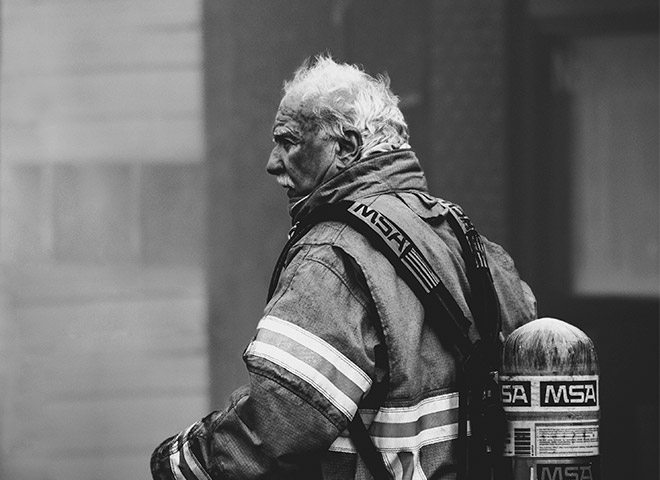
Preventing cancer in the fire service is like a giant puzzle. Each part of the puzzle is important but until you put them all together you won’t see the full picture. But to be able to put them together we must first find the pieces, and this is where the research comes in. To be able to prevent cancer we must first understand what is causing it, how and where exposure to carcinogenic compounds and substances happens, and how our bodies absorb these chemicals.
Research on Exposures
Going back to the puzzle theory, we have several areas of research when it comes to exposures. For example, some researchers will work on quantifying how much exposure firefighters are getting1, and others will look at the individual compounds that are products of combustion. Other studies have looked at urine samples and can identify how firefighters process those exposures.2 How our bodies absorb the exposure is of course also important to know. Is it dermal, respiratory or through ingestion?
Research of Genotoxicity
We now know that different products of combustion affect firefighters differently. How those chemicals and compounds affect firefighters’ genetics is referred to as Genotoxicity. Research is currently being conducted to look at how PAHs affect the DNA structure in firefighters. It is well established that PAHs can alter your DNA structure and for some PAHs, the DNA will repair itself over time. However, this isn’t always the case. We now know that some PAHs can cause permanent damage to firefighter DNA and will lead to long-term health issues such as cancer.
Other Areas of firefighter Cancer Research
Exposure to carcinogenic materials is only one part of the puzzle. We also know that poor sleep quality and unhealthy diets can also lead to cancer.3 This isn’t exactly the greatest news in the world for career firefighters since they typically work 24 to 48-hour shifts. During those shifts, they can and most likely will get up several times a night interrupting their sleep cycles. Research has also shown that exposure to the exhaust of fire trucks is extremely carcinogenic and should be avoided.
How does the research affect the firefighting industry?
In July of 2022 the International Agency for Research on Cancer (IARC), the cancer agency of the World Health Organization (WHO), convened a group of 25 international experts, including 3 Invited Specialists, from 8 countries for a meeting in Lyon, France. The group thoroughly reviewed scientific literature and came to the conclusion that occupational exposure as a firefighter is to be considered as carcinogenic to humans, on the basis of sufficient evidence for cancer in humans. 4
Not only does this make it easier for firefighters to fight for workers’ compensation coverage, but it also highlights the importance of research and will create more opportunities and funds to conduct further research.
The more we know about what substances are carcinogenic, where they originate from, and where the exposure is taking place, the easier it is for the industry to adjust. What products and aids are there to help reduce exposure? Can we switch to new more health-friendly products? Can we improve our decontamination process?
The good news is that as research continues, the more pieces of the puzzle we will get which will give us a better idea of what needs to be done to prevent or reduce exposure to carcinogens.
- Occupational Exposure to Polycyclic Aromatic Hydrocarbons and Elevated Cancer Incidence in Firefighters | Scientific Reports (nature.com)
- Firefighters exposure to fire emissions: Impact on levels of biomarkers of exposure to polycyclic aromatic hydrocarbons and genotoxic/oxidative-effects - ScienceDirect
- Thomson (abcsignup.com)
- IARC Monographs evaluate the carcinogenicity of occupational exposure as a firefighter – IARC (who.int)






